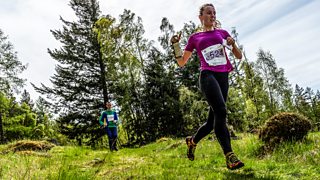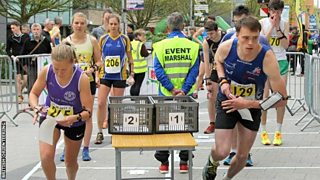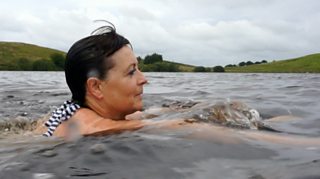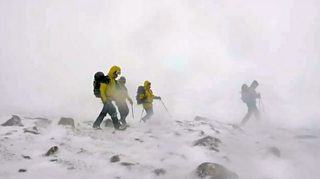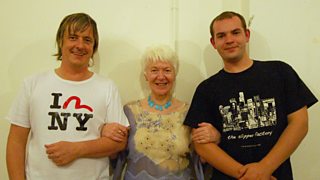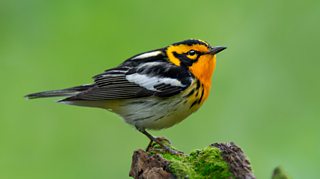Grab your map and compass — find yourself with orienteering
7 September 2018
In early 2018, at Balmoral in Royal Deeside, the crème de la crème battled it out for the British Orienteering Championships — not just a test of physical ability but of mental dexterity as well.
Runners only learn their destination at the start of each race, when they pick up their map; they’re never given the same journey twice.
It’s all about making quick decisions on the spot and then running through the wilderness.
-
![]()
The Adventure Show on ´óÏó´«Ã½ iPlayer
Full coverage of the British Orienteering Championships.
The British Orienteering Championships in Royal Deeside
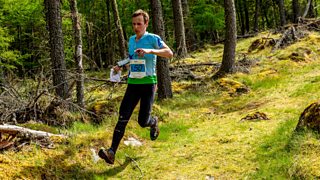
A supreme test of physical fitness and mental dexterity.
An on-board guide to orienteering
Former British champion Claire Ward described the basics of the sport while attempting the women’s course used in the British Championships.
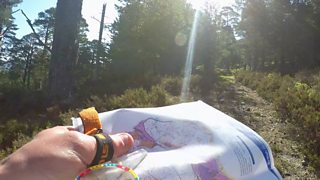
Claire explained, “You have to hold yourself back slightly to make sure you know exactly where you’re going and why because, otherwise, with every hesitation you could be running one minute a mile slower — so it really is the navigation that counts.”
Working with a compass attached to her thumb, she held its tip at her position on the map so that, whenever she glances down, her eyes go straight to her location.
Considering the sport’s appeal, she said “I think people enjoy the mental challenge; it’s like a crossword. You could probably go online and solve that crossword clue, but would you get the same satisfaction? And orienteering is the same thing in a way, I think.
“It pays off to focus on putting all your concentration into nailing that checkpoint.
“It’s just such a buzz. A good planner will put tricky little [checkpoint] controls at the end of the course. Athletes are tired; the brain’s starting to switch off — it’s when they most need to be focusing.”
-
![]()
A handy guide to get you up and running.
Orienteering’s history

The term ‘orientering’ – meaning to cross unknown land with the aid of a map and compass – originated from Swedish military training in 1886.
It began as a sport among officers and then transferred to civilians.
The first competition open to the public was held in Norway, in 1897.
Latest features from ´óÏó´«Ã½ Scotland
-
![]()
'Wild swimming helps me process the grief of losing my son'
The benefits of cold water therapy.
-
![]()
Winter adventures are appealing, but an expert advises caution
Trips in winter require particular knowledge and skills.
-
![]()
The rescuers: Why volunteers risk their lives in mountain emergencies
Landward meets members of the Cairngorm Mountain Rescue Team.
-
![]()
‘Look for the light’ – practical tips to help you through another winter with SAD
Useful advice and tips to combat low moods at this time of year.
-
![]()
How you could be a binge drinker without even knowing
Binge drinking is classed as fewer units than many people may realise.
-
![]()
How chocolate biscuits and drama classes helped one man leave prison behind
The healing power of creativity.
-
![]()
'When people believe in you, it’s life-changing'
Author Graeme Armstrong revisits the man who helped turn his life around.
-
![]()
The 'breath-taking' display of US birds swept on to British soil
Recent storms have brought rare birds to our shores.
-
![]()
Six things we learned about Alan Cumming on Take the Floor (Spoiler: includes accordions)
The actor spoke to Take the Floor's Gary Innes.
-
![]()
How street gangs trap young men in a dangerous cycle of violence
The almost inescapable pull of life in a gang.
-
![]()
Why stylist Gok Wan believes there's no such thing as bad fashion
The fashion expert says we should stop following rules and do what feels right.
-
![]()
Is sending a CV still the right way to apply for a job?
They've been central to job applications for years, but are they worth it?
